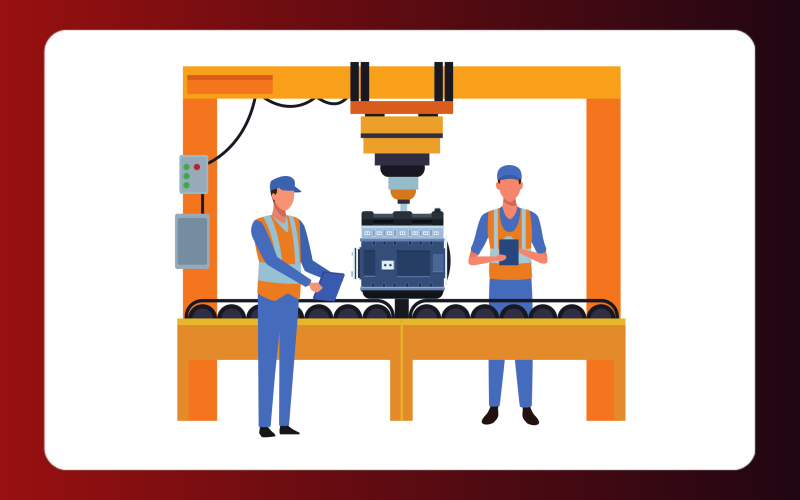Admission Enquiry

A Bachelor of Vocation (B.Voc.) in Industrial Electronics Manufacturing program is meticulously crafted to equip students with a comprehensive understanding of the principles, technologies, and processes involved in the manufacturing of electronic components and systems used in industrial settings. This specialized course integrates theoretical knowledge with practical skills, preparing students for diverse career opportunities in industries such as electronics manufacturing, automation, robotics, telecommunications, and industrial control systems.
Throughout the program, students delve into a wide array of subjects covering topics such as electronic circuit design, digital electronics, analog electronics, microcontrollers, programmable logic controllers (PLCs), industrial automation, sensor technology, embedded systems, and quality control in electronics manufacturing. The curriculum is structured to provide students with a deep understanding of electronic components, circuits, and systems, as well as their applications in industrial environments.
Hands-on training is a central component of the program, allowing students to gain practical experience in designing, assembling, testing, and troubleshooting electronic components and systems used in industrial automation and control applications. They may engage in laboratory experiments, projects, internships, and industry collaborations to develop proficiency in using specialized tools, equipment, and software for electronic manufacturing processes. Additionally, students learn about safety protocols, quality standards, and regulatory requirements relevant to working in industrial electronics manufacturing environments.
The B.Voc. in Industrial Electronics Manufacturing program also emphasizes the importance of problem-solving, critical thinking, and innovation. Students are encouraged to analyze real-world industrial challenges, propose creative solutions, and collaborate effectively with multidisciplinary teams to optimize manufacturing processes, enhance productivity, and ensure product quality. They may work on projects involving the design and implementation of automated production lines, the integration of industrial control systems, or the development of smart sensors for process monitoring and control.
Upon completion of the program, graduates are well-prepared to pursue diverse career opportunities in the electronics manufacturing industry. They may assume roles such as electronic manufacturing technicians, industrial automation engineers, control systems engineers, process engineers, quality assurance specialists, or technical support specialists. Additionally, the program provides a solid foundation for further education and specialization in fields such as electronic engineering, automation engineering, mechatronics, or industrial systems engineering.
In conclusion, a B.Voc. in Industrial Electronics Manufacturing equips students with the specialized knowledge, practical skills, and technical expertise needed to excel in the dynamic and fast-paced field of industrial electronics manufacturing. By bridging the gap between electronics and industrial automation, graduates are poised to contribute to the optimization of manufacturing processes, the improvement of product quality, and the advancement of industrial automation technologies, thereby driving innovation and competitiveness in industrial sectors.
Copyrights © 2024 NIILM UNIVERSITY. All rights reserved.